 Like many of his books, Carl Schmitt’s The Crisis of Parliamentary Democracy (1923) is a slender volume packed with explosive ideas.[1] [2] The title of the English translation is somewhat misleading. The German title, Die geistesgeschichtliche Lage des heutigen Parlamentarismus, is more literally rendered The Intellectual-Historical Position of Contemporary Parliamentarism. But the word “crisis” is still appropriate, because parliamentary democracy in Weimar Germany really was in crisis. Moreover, Schmitt’s diagnosis of the cause is of permanent value, because all parliamentary democracies have the same basic weakness.
Like many of his books, Carl Schmitt’s The Crisis of Parliamentary Democracy (1923) is a slender volume packed with explosive ideas.[1] [2] The title of the English translation is somewhat misleading. The German title, Die geistesgeschichtliche Lage des heutigen Parlamentarismus, is more literally rendered The Intellectual-Historical Position of Contemporary Parliamentarism. But the word “crisis” is still appropriate, because parliamentary democracy in Weimar Germany really was in crisis. Moreover, Schmitt’s diagnosis of the cause is of permanent value, because all parliamentary democracies have the same basic weakness.
By “contemporary” parliamentarism, Schmitt specifically means “liberal-democratic parliamentarism.” Let’s define these terms.
Schmitt does not think that voting is essential to democracy. Democracy is simply the idea that a government is legitimate if it expresses the will of the people, the demos. But Schmitt recognizes that a dictator can sometimes express the will of the people better than the people can at the ballot box or their representatives can in parliament (p. 28).
This is because the will of the people is not necessarily what the people happen to want at the moment they cast their votes. Instead, it is what people really want, which basically means what they ought to want, on the Socratic assumption that what we really want is the good. If we all want the good, but some of us are mistaken about what the good is, then it is possible that someone else—say, a dictator—might know what the people want better than they do.
For convenience, I am going to call what the people really want—and ought to want—“the common good,” although Schmitt does not use this language.
Schmitt is not really clear about what is essential to liberalism. He claims that the separation of powers, open parliamentary debate, and a free press are essential to liberalism (p. 3). But these are just manifestations of the underlying liberal motive, which is the protection of individuals from state power. Liberals believe that all individuals have rights that exist prior to society and argue that individual rights should trump appeals to the common good.
Liberals have many opinions about the common good. Some deny that it exists. Others think it exists but is unknowable. Others claim that it exists and can be known, but it cannot be secured by state action. Therefore, the best we can hope is that the common good somehow emerges as the unintended consequence of individuals and groups selfishly pursuing their private interests. Still other liberals might think that the common good is real, knowable, and securable by the state, but that individual rights always have a superior claim.
Democracy is not necessarily liberal. Democracy can justify virtually any state action by appeals to the common good, especially in emergencies. Liberalism is not necessarily democratic, because monarchical regimes can also secure individual rights. For instance, Thomas Mann rejected the Weimar Republic for monarchy on essentially liberal grounds: “I want the monarchy. I want a passionately independent government, because only it offers protection for freedom in the intellectual as well as the economic sphere. . . . I don’t what this parliament and party business that will sour the whole life of the nation. . . . I don’t want politics. I want competence, order, and decency.”[2] [3]
Schmitt does zero in on the essence of parliamentarism, which is talk. The very word parliament comes from the French parler, to speak, and refers to arriving at government decisions—executive, judicial, and above all, legislative—by means of discussion (p. 5). Parliament is, therefore, essentially pluralistic, whereas a monarchical regime or a democratic dictatorship has a unitary decision-maker.
 The rationale for making decisions in parliament, as opposed to reposing them in the hands of a single man, is that even the wisest man may benefit from hearing other points of view. We are more likely to arrive at the best possible decision if a number of people bring different perspectives and bodies of knowledge to the table. But the process only works if all parties are open to being persuaded by one another, i.e., they are willing to change their minds if they hear a better argument. This is what argument in “good faith” means, as opposed to merely shilling for a fixed idea.
The rationale for making decisions in parliament, as opposed to reposing them in the hands of a single man, is that even the wisest man may benefit from hearing other points of view. We are more likely to arrive at the best possible decision if a number of people bring different perspectives and bodies of knowledge to the table. But the process only works if all parties are open to being persuaded by one another, i.e., they are willing to change their minds if they hear a better argument. This is what argument in “good faith” means, as opposed to merely shilling for a fixed idea.
Although Schmitt does not use this language, we can speak of parliament as an edifying institution, meaning that participation in parliamentary debate helps us improve ourselves by replacing personal opinions with common truths. But good-faith participation in parliamentary dialogue requires a constant effort to transcend selfish attachments to one’s own ego, opinions, and interests in order to serve the common good. Such public-spiritedness and objectivity are rare and precious virtues, the products of a rigorous form of education. We’re not all born that way.
Parliamentarism is not necessarily democratic, because even monarchical regimes can have parliaments. Democracies are not necessarily parliamentary, because the will of the people can be carried out by a dictator (pp. 16, 32). Parliamentarism is not necessarily liberal, because monarchies and democracies can be parliamentary without granting individual rights against the state. And liberalism need not be parliamentary, since monarchical and dictatorial regimes can protect individual rights.
Because liberalism, democracy, and parliamentarism don’t necessarily entail one another, liberal-democratic parliamentarism is a synthesis that is prone to instability and crisis. Specifically, Schmitt argues that parliamentary democracy is undermined by liberalism.
Schmitt does not openly state his own preferences, but he seems to favor the democratic idea of legitimacy. He also argues that parliamentary democracy can work, but only under certain conditions. One of the central problems of politics is maintaining the unity of society. When unity fails, we face one of the greatest political evils: civil war. Given the importance of unity, it seems risky, even reckless, to bring a plurality of voices and interests into the very heart of the state and encourage them to debate about the common good. But that is the essence of parliamentarism.
According to Schmitt, a society can risk parliamentary debate only if two important conditions are met.
First, the differences between the various parties need to exist against a backdrop of relative homogeneity, the more homogeneity the better: of race, culture, language, religion, manners, and morals (p. 9). Thus the people and their government will remain one, even if parliament is deeply polarized over a particularly thorny issue like slavery or abortion.
Second, even within largely homogeneous societies, the franchise is generally limited to a particular subgroup—such as male property owners—to increase the quality of electoral decision-making. This increases the homogeneity of decision-makers even further. In short, a society can afford to enshrine disagreement in the heart of its government only when everyone is pretty much the same, thus the unity of society is not at risk.
Schmitt argues that liberalism undermines parliamentary democracy because of “the contradiction between liberal notions of human equality and democratic homogeneity” (p. 15). Parliamentary democracy presupposes a certain kind of equality that Schmitt characterizes as “substantial,” meaning simply the homogeneity of the society at large and of the electorate in particular (pp. 9, 10, 15). Liberalism undermines substantive equality with its abstract and universal equality. Liberalism sees no reason to confine democracy to a single society or to a single stratum within a society. Thus it lobbies to abolish the distinction between citizen and foreigner and to broaden the franchise as much as possible, regardless of sex, education, age, or intelligence.
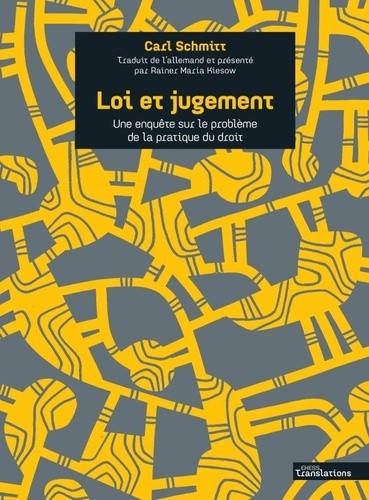 Liberalism’s abstract egalitarian zeal has never resulted in a global liberal democracy or the enfranchisement of every infant or imbecile (p. 16). Indeed, such goals are impossible. But it has undermined the conditions that make good-faith parliamentary discussions possible.
Liberalism’s abstract egalitarian zeal has never resulted in a global liberal democracy or the enfranchisement of every infant or imbecile (p. 16). Indeed, such goals are impossible. But it has undermined the conditions that make good-faith parliamentary discussions possible.
As the diversity and inclusiveness of a society increase, the voices and interests represented in parliament become increasingly diverse as well. Too much diversity, however, makes it difficult to arrive at any sort of consensus. There are too many shades of opinion to reconcile, too many interests to accommodate.
To reach any agreement at all, parliament can no longer be an edifying institution, in which people grow by exchanging opinions for truth. Instead, it must become a very different kind of institution, in which people no longer seek to transcend what economists call “given preferences.” Instead, they seek simply to satisfy their given preferences through trade (p. 6). Parliament, in effect, becomes a marketplace where agreement is based not on arriving at a common truth about the common good, but simply arriving at an exchange that satisfies the private interests of all parties. And, since in trade, the highest bidder takes the prize, the more liberal a parliamentary democracy is, the more oligarchical it becomes.
Of course, liberal democracies don’t dispense entirely with parliamentary debate. Instead, they turn it into a farce. The sordid little deals that allow liberal democracy to “work” are still, technically, “corruption” and “bad faith.” Thus they cannot be struck in public debate in the parliamentary chamber. Instead, they are made in the antechamber, the proverbial “lobby” (p. 7). Lobbying takes place behind closed doors: in secret committees, private clubs, discreet dinners, and other smoke-filled rooms. What’s more, everybody knows it, and as this cynicism spreads, the legitimacy of liberal democracy collapses, people start looking for alternatives, and a crisis is at hand.
It is important to note that the essential weakness of liberalism is not just its abstract and universalistic notion of equality. Another factor is its conception of rights and interests as essentially private and material, as opposed to the idea of the common good.
One can imagine a liberal parliamentary democracy without the reckless abstract and universalist egalitarianism that abolishes borders and standards for the franchise. But absent a robust conception of the common good, liberalism’s essentially private and material concept of political rights and interests will inevitably lead to political corruption, cynicism, and collapse, as the nation’s material patrimony is privatized and its spiritual patrimony is allowed to simply rust away and be replaced with global consumer crap culture.
Liberal democratic politicians have long been infamous for their anti-intellectualism, casual corruption, and cowardice. This follows directly from bourgeois liberalism, which conceives of all interests as essentially private and material, differing only in degree, and thus accommodatable through exchange. The idea of absolute differences of principle seems to them like a dangerous form of fanaticism, but bourgeois politicians are eager to appease such fanatics, most of whom are found on the Left. This is why bourgeois societies continually drift to the Left.
Schmitt argues that the crisis of liberal democracy opens the door to a takeover by the Left. Hence chapter 3 of his book treats “Dictatorship in Marxist Thought” and chapter 4 discusses “Irrationalist Theories of the Direct Use of Force,” focusing mainly on French syndicalist Georges Sorel. But in chapter 4, Schmitt also holds out the possibility of an equally vital Right-wing alternative to liberal democracy.
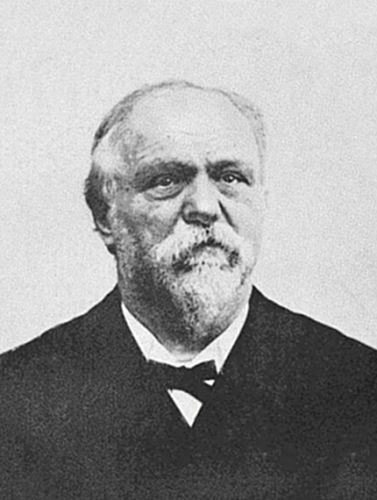 Schmitt isn’t always forthcoming about his own political preferences, but sometimes his rhetoric tips his hand. The first three chapters of Crisis are quite dry, and Schmitt’s arguments only really come into focus in the 1926 Preface to the Second Edition. But chapter 4 crackles with enthusiasm as Schmitt discusses Sorel’s Reflections on Violence, as well as Russian anarchist Mikhail Bakunin, French anarchist Pierre-Joseph Proudhon, and Spanish Catholic reactionary Juan Donoso Cortés. Then Schmitt ends by arguing that nationalism and fascism are more consistent with Sorel’s ultimate premises than are Communism, socialism, or anarcho-syndicalism.
Schmitt isn’t always forthcoming about his own political preferences, but sometimes his rhetoric tips his hand. The first three chapters of Crisis are quite dry, and Schmitt’s arguments only really come into focus in the 1926 Preface to the Second Edition. But chapter 4 crackles with enthusiasm as Schmitt discusses Sorel’s Reflections on Violence, as well as Russian anarchist Mikhail Bakunin, French anarchist Pierre-Joseph Proudhon, and Spanish Catholic reactionary Juan Donoso Cortés. Then Schmitt ends by arguing that nationalism and fascism are more consistent with Sorel’s ultimate premises than are Communism, socialism, or anarcho-syndicalism.
Anarchism derives from the Greek anarchia (ἀναρχία), meaning the lack of an arche (ἀρχή ) or first principle. For Bakunin and Proudhon, anarchism is not simply a rejection of top-down political order, but a rejection of a metaphysical first principle (God) and an epistemological first principle (reason). Anarchism replaces top-down political order with spontaneous, bottom-up, social self-organization. God is replaced by the dynamism of nature. Reason and science are replaced with animal vitality, spontaneity, imagination, art, and action. For Sorel, the opposite of rational self-possession is the enthralling power of myth and the spontaneity of action, especially violence that both expresses and releases vital energies by smashing the political and economic machines of priests, kings, and capitalists. To give you a sense of his style, I am going to quote Schmitt’s summary of Sorel’s thinking at length:
. . . Its center [i.e., the center of Sorel’s theory] is a theory of myth that poses the starkest contradiction of absolute rationalism and its dictatorship, but at the same time, because it is a theory of direct, active decision, it is an even more powerful contradiction to the relative rationalism of the whole complex that is grouped around conceptions such as “balancing,” “public discussion,” and “parliamentarism.”
The ability to act and the capacity for heroism, all world-historical activities reside, according to Sorel, in the power of myth. . . . Out of the depths of a genuine life instinct, not out of reason or pragmatism, springs the great enthusiasm, the great moral decision, and the great myth. In direct intuition, the enthusiastic mass creates a mythical image that pushes its energy forward and gives it the strength for martyrdom as well as the courage to use force. Only in this way can a people or class become the engine of world history. Wherever this is lacking no social and political power can remain standing. And no mechanical apparatus can build a dam if a new storm of historical life has broken loose. Accordingly, it is all a matter of seeing where this capacity for myth and this vital strength are really alive today. In the modern bourgeoisie, which has collapsed into anxiety about money and property, in this social class morally ruined by skepticism, relativism, and parliamentarism, it is not to be found. The governmental form characteristic of this class, liberal democracy, is only a “demagogic plutocracy.” Who then, is the vehicle of great myth today? Sorel attempted to prove that only the socialist masses of the industrial proletariat had a myth in which they believe, and this was the general strike. . . . It has arisen out of the masses, out of the immediacy of the life of the industrial proletariat, not as a construction of intellectuals and literati, not as a utopia; for even utopia, according to Sorel, is the product of a rationalist intellect that attempts to conquer life from the outside with a mechanistic scheme.
From the perspective of this philosophy, the bourgeois ideal of peaceful agreement, an ongoing and prosperous business that has advantages for everyone, becomes the monstrosity of cowardly intellectualism. Discussing, bargaining, parliamentary proceedings appear a betrayal of myth and the enormous enthusiasm on which everything depends. Against the mercantilist image of balance, there appears another vision, the warlike image of a bloody, definitive, destructive, decisive battle (pp. 68–69)
Sorel claims that the myth that animates the proletariat is “the general strike” in which the entire proletariat brings the economy to a halt until its demands are met.
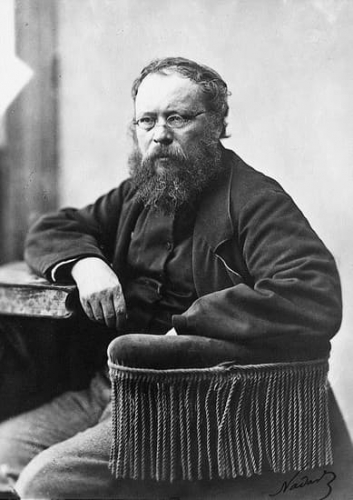 Schmitt then hastens to add that a similar vision of a bloody final reckoning was found on the Right: “In 1848 this image rose up on both sides in opposition to parliamentary constitutionalism: from the side of tradition in a conservative sense, represented by a Catholic Spaniard, Donoso Cortés, and in radical anarcho-syndicalism in Proudhon. Both demanded a decision. . . . Instead of relative oppositions accessible to parliamentary means, absolute antitheses now appear” (p. 69). But the tireless talk of bourgeois parliamentarians is all about evading the necessity of decision in the face of hard either/ors, about evading the existence of real enmity. “In the eyes of Donoso Cortés, this socialist anarchist [Proudhon] was an evil demon, a devil, and for Proudhon the Catholic was a fanatical Grand Inquisitor, whom he attempted to laugh off. Today it is easy to see that both were their own real opponent and that everything else was only a provisional half-measure” (p. 70). Schmitt clearly hungers for a similar clarity in Weimar and saw the rise of Fascism in Italy as the present-day nemesis of the Left.
Schmitt then hastens to add that a similar vision of a bloody final reckoning was found on the Right: “In 1848 this image rose up on both sides in opposition to parliamentary constitutionalism: from the side of tradition in a conservative sense, represented by a Catholic Spaniard, Donoso Cortés, and in radical anarcho-syndicalism in Proudhon. Both demanded a decision. . . . Instead of relative oppositions accessible to parliamentary means, absolute antitheses now appear” (p. 69). But the tireless talk of bourgeois parliamentarians is all about evading the necessity of decision in the face of hard either/ors, about evading the existence of real enmity. “In the eyes of Donoso Cortés, this socialist anarchist [Proudhon] was an evil demon, a devil, and for Proudhon the Catholic was a fanatical Grand Inquisitor, whom he attempted to laugh off. Today it is easy to see that both were their own real opponent and that everything else was only a provisional half-measure” (p. 70). Schmitt clearly hungers for a similar clarity in Weimar and saw the rise of Fascism in Italy as the present-day nemesis of the Left.
Donoso Cortés was at heart a backwards-looking, reactionary monarchist. But Schmitt does not mention here that Donoso Cortés believed that monarchy no longer really existed. There were still kings, but even they did not believe in the legitimacy of monarchy. Instead, the fount of political legitimacy had passed to the people. Thus Europe’s remaining monarchs simply followed liberal democrats, who in turn followed the far Left: “Only in socialism did he see what he call instinct (el instinto) and from which he concluded that in the long run all the parties were working for socialism” (p. 70). Unfortunately, the Left was leading the entire world to perdition.[3] [7] Thus, Donoso Cortés embraced the idea of a reactionary dictatorship not merely to protest or retard but to reverse the “progress” of the Left. He was, therefore, something of a forerunner of modern Fascism, which Schmitt discusses in the conclusion of his book.
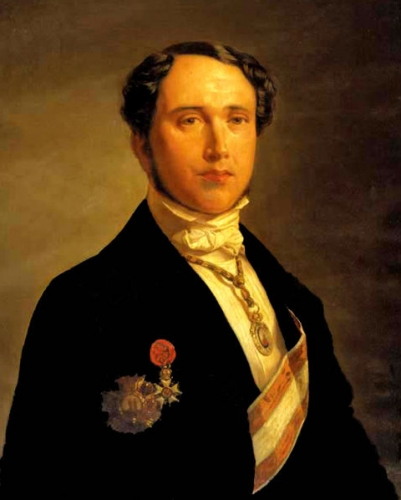 Schmitt closes with an immanent critique of Sorel. First, Schmitt argues that Sorel himself ultimately subordinates proletarian myth and violence to rationalism, because the goal of the revolution is to take control of the means of production. But the modern economic system is of a piece with bourgeois democracy, thus “If one followed the bourgeois into economic terrain, then one must also follow him into democracy and parliamentarism” (p. 73). This does not strike me as particularly persuasive. When Schmitt was writing, the example of Imperial Japan showed that one can have a modern industrial economy without liberal democracy.
Schmitt closes with an immanent critique of Sorel. First, Schmitt argues that Sorel himself ultimately subordinates proletarian myth and violence to rationalism, because the goal of the revolution is to take control of the means of production. But the modern economic system is of a piece with bourgeois democracy, thus “If one followed the bourgeois into economic terrain, then one must also follow him into democracy and parliamentarism” (p. 73). This does not strike me as particularly persuasive. When Schmitt was writing, the example of Imperial Japan showed that one can have a modern industrial economy without liberal democracy.
But one can’t have a modern industrial economy without rationalism, thus: “should this economic order develop even further, should production intensify even more, which Sorel obviously also wants, then the proletariat must renounce its myth. Just like the bourgeoise, it will be forced, through the superior power of the production mechanism, into a rationalism and mechanistic outlook that is empty of myth” (p. 73). This is a much more persuasive argument, for syndicalism becomes a farce if the proletariat overthrows gods, kings, and capitalists, only to refashion itself in their image.
But how can one consolidate the victory against rationalism and disenchantment into an entirely new form of society? Schmitt’s answer is that one needs a stronger myth than the general strike: namely nationalism.
Schmitt then discusses how Marxist and syndicalist ideas became fused with nationalism. The “bourgeoisie” as a figure of contempt was “first created by the aristocracy” then “propagated in the nineteenth century by romantic artists and poets” (p. 74). Marx and Engels then picked it up and, despite the pseudo-scientific sheen of Hegelian dialectics, transformed the bourgeoise into “an image of the enemy that was capable of intensifying all the emotions of hatred and contempt” (pp. 73–74).
When the Marxist myth of the bourgeoisie migrated to Russia, “it was able to give new life to the Russian hatred for the complication, artificiality, and intellectualism of Western European civilization . . .” (p. 74). At this point, Marxism “seized a myth for itself that no longer grew purely out of the instinct for class conflict, but contained strong nationalist elements” (p. 74). This fusion of Marxism and Russia’s anti-Western national identity probably helped Communism take root in Russia first: “Proletarian use of force had made Russia Muscovite again” (p. 75).
This, Schmitt argues, “shows that the energy of nationalism is greater than the myth of class conflict” (p. 75). Moreover, Sorel’s other examples of the power of political myth include the German and Spanish wars of liberation against Napoleon which again prove that “the stronger myth is national”; “. . . whenever it comes to an open confrontation of the two myths, such as in Italy, the national myth has, until today always been victorious” (p. 75).
Schmitt doesn’t say why the national myth is more powerful than the myth of the general strike, but surely one factor is that the national myth embraces the whole of a people, not just the workers, and draws its energy from more threads of identity than just economic deprivation. As Schmitt notes:
In national feeling, various elements are at work in the most diverse ways, in very different peoples. The more naturalistic conceptions of race and descent, the more typical terrisme of the Celtic and Romance peoples, the speech, traditions, and consciousness of a shared culture and education, the awareness of belonging to a community with a common fate or destiny, a sensibility of being different from other nations—all of that tends toward a national rather than a class consciousness today. (p. 75)
This passage also throws a good deal of light on Schmitt’s remarks on the homogeneity that makes democracy possible. Schmitt, however, emphasizes that democracy requires even more homogeneity among electors, hence the limitation of the franchise based on age, sex, social class, education, and other factors.
Schmitt’s contemporary example of the superiority of the myth of the nation to that of the proletariat is the rise of Fascism in Italy:
Until now the democracy of mankind has only once been contemptuously pushed aside through the conscious appeal to myth, and that was an example of the irrational power of the national myth. In his famous speech of October 1922 in Naples before the March on Rome, Mussolini said “We have created a myth. This myth is a belief, a noble enthusiasm: it does not need to be reality; it is a striving and a hope, belief and courage. Our myth is the nation, the great nation which we want to make into a concrete reality for ourselves.” In the same speech he called socialism an inferior mythology. (p. 76)
 The nineteenth century was the age of parliamentary liberal democracy. The twentieth century is the age of political myths. The rise of political myth is itself “the most powerful symptom of the decline of the relative rationalism of parliamentary thought” (p. 76). The Left may be the gravedigger of liberal democracy, but it offers no real alternative, simply modern materialism and rationalism stripped of the liberal charms of freedom and private life.
The nineteenth century was the age of parliamentary liberal democracy. The twentieth century is the age of political myths. The rise of political myth is itself “the most powerful symptom of the decline of the relative rationalism of parliamentary thought” (p. 76). The Left may be the gravedigger of liberal democracy, but it offers no real alternative, simply modern materialism and rationalism stripped of the liberal charms of freedom and private life.
But the Left, quite unwittingly, has laid “the foundation of another authority, . . . an authority based on the new feeling for order, discipline, and hierarchy” (p. 76). A decade later, Schmitt cast his lot with the German party of national rebirth. The age of discussion was over; the age of myth had begun.
Nearly a century later, what light does Schmitt’s Crisis throw on our own? Schmitt is absolutely correct that liberalism’s mania for opening borders and lowering standards has made modern democracies increasingly dysfunctional.
As for the alternatives to liberal democracy, Left and Right versions still exist. But the myth of the general strike is completely dead. The proletariat was successfully wooed by both fascism and liberal democracy, so the Left now disdains the white working class as reactionaries and instead seeks to mobilize non-whites and sexual outsiders against the white majority. The new Leftist myth is of white guilt and non-white aggrievement. It is now so dominant that the United States is tearing itself to pieces. The American center-Right has completely capitulated to the mob. Their strategy is to do nothing and hope that the mob gets tired, so Republicans will not have to exercise courage.
The myth of the nation, however, is still very much alive. Liberal democracy and communism defeated fascism in the Second World War, but they did not defeat nationalism. Indeed, the Allies defeated the Axis only by drawing upon their own national myths. Currently, the liberal-democratic establishment is coddling the Left that is actively working to destroy it. Thus, for the time being, the nationalist Right should do nothing. Never interrupt your enemies when they are destroying one another.
But the center cannot hold. Eventually, a space will be cleared for a new confrontation of myths: the myth of white guilt, degradation, and death vs. the myth of white pride and regeneration. We call it White Nationalism. Before that confrontation comes, though, we need to ensure that our myth is the stronger.
If you want to support our work, please send us a donation by going to our Entropy page [8] and selecting “send paid chat.” Entropy allows you to donate any amount from $3 and up. All comments will be read and discussed in the next episode of Counter-Currents Radio, which airs every Friday.
Don’t forget to sign up [9] for the twice-monthly email Counter-Currents Newsletter for exclusive content, offers, and news.
Notes
[1] [10] Carl Schmitt, The Crisis of Parliamentary Democracy, trans. Ellen Kennedy (Cambridge, Mass.: MIT Press, 1985).
[2] [11] Quoted in Ellen Kennedy’s Introduction, Crisis, p. xxiv
[3] [12] See Schmitt’s fuller discussion of Donoso Cortés in Political Theology: Four Chapters on the Concept of Sovereignty (1922), trans. George Schwabb (Cambridge, Mass.: MIT Press, 1988), chapter 4, “On the Counterrevolutionary Philosophy of the State.”



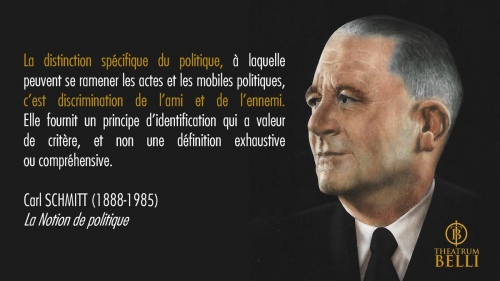

 del.icio.us
del.icio.us
 Digg
Digg
Les commentaires sont fermés.